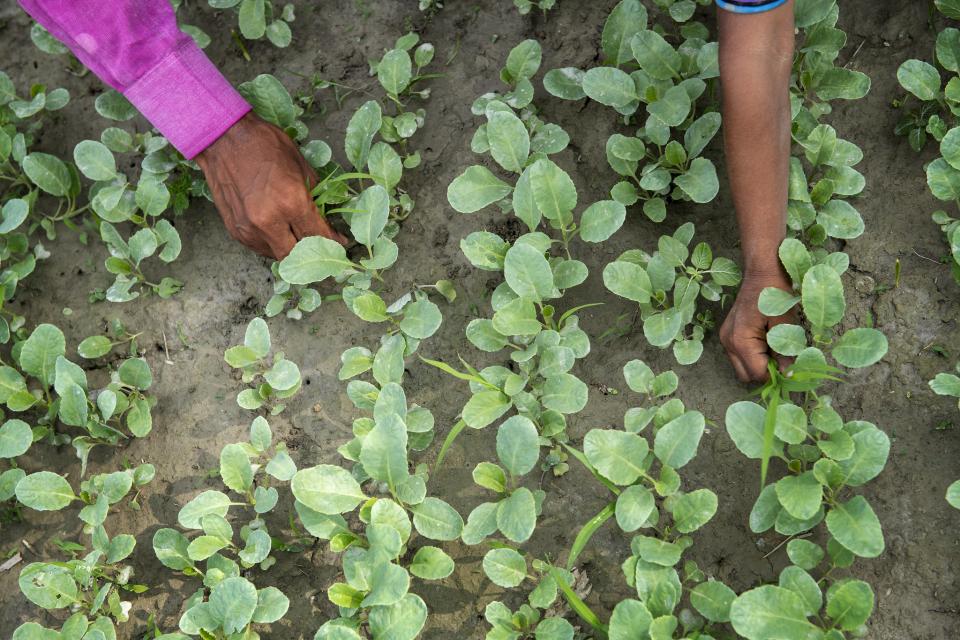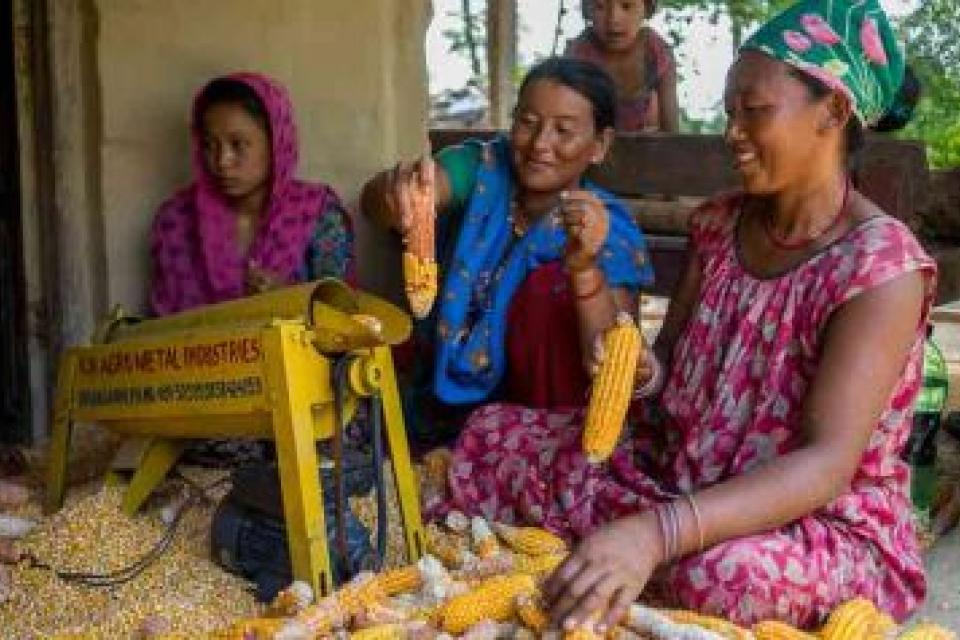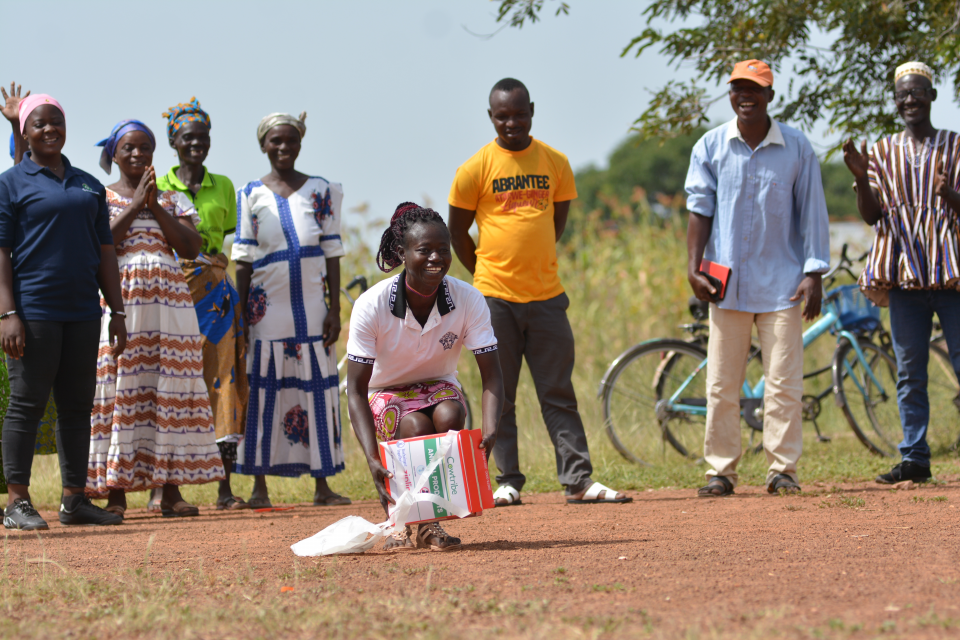Making African food systems gender-responsive for equitable livelihoods
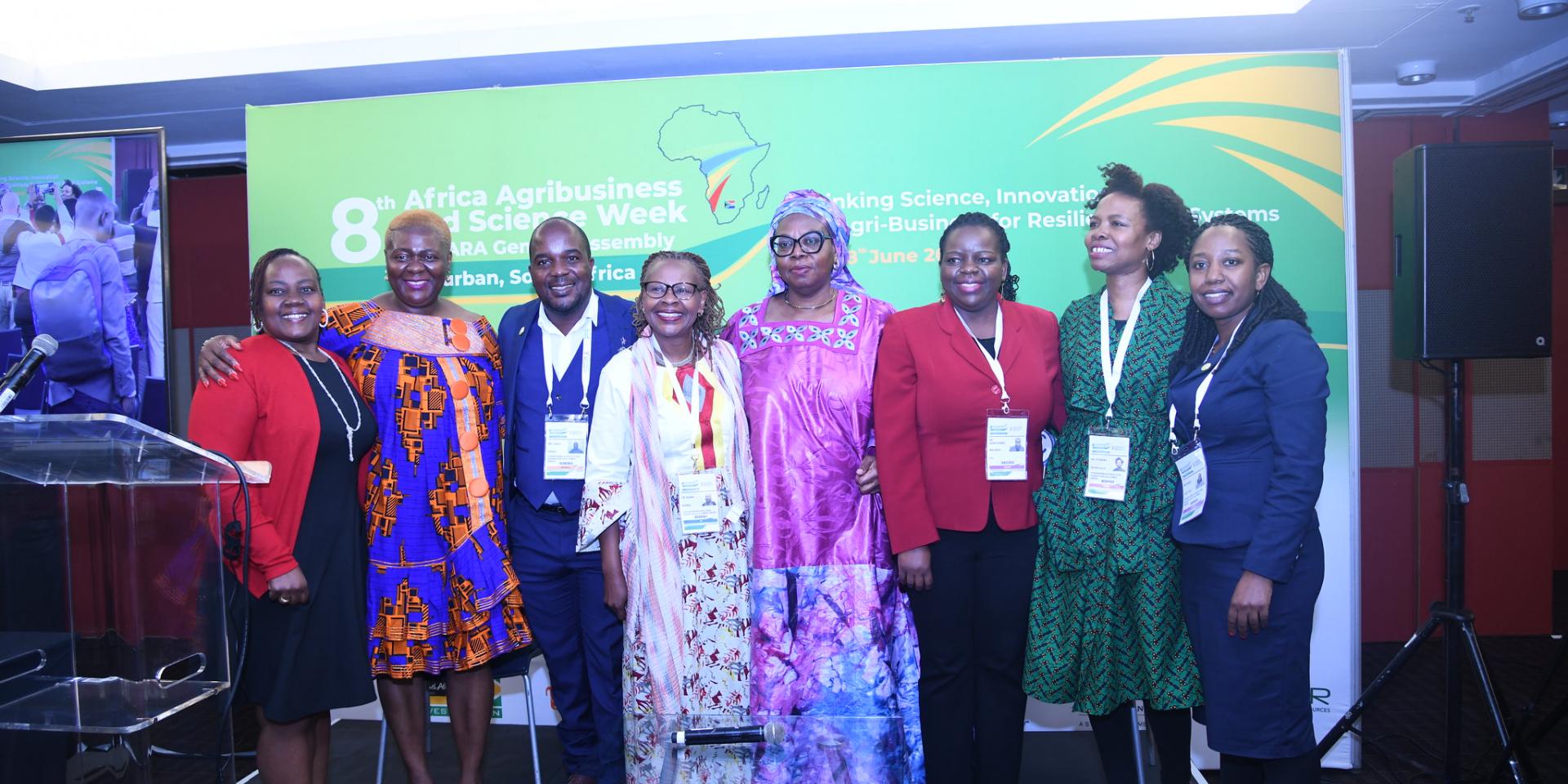
Despite increasing recognition of their critical role in food systems, women still face more barriers than men to accessing the productive resources needed to respond to crises. Since the release of the State of Food and Agriculture report by the Food and Agriculture Organization of the United Nations (FAO) in 2011, little progress has been made to close the gender gaps in agri-food systems.
In April 2023, the FAO released a report on the Status of Women in Agrifood Systems, highlighting the persistence of these gaps over the last decade, especially in access to resources and extension services.
At the recent Africa Agribusiness Science Week, organized by the Forum for Agricultural Research in Africa, a parallel event was organized by African Women in Agricultural Development (AWARD) together with CGIAR GENDER Impact and other partners to explore how gender-responsive agriculture can accelerate progress toward equitable and healthy food systems.
While opening the session Dr. Susan Kaaria, Director of AWARD, welcomed the SWAF report for highlighting why closing the gender gap is an urgent imperative, and how adopting gender-transformative strategies and approaches can move the needle forward.
“We need to think of women’s empowerment as a goal in itself,” Dr. Kaaria said.
Dr. Erdgin Mane, FAO Policy Officer, added, “This report highlights how different segments of agrifood systems are conditioned by structural inequalities linked to gender and/or intersecting with social and economic differentiation.” Dr. Mane also remarked that women’s working conditions are often “irregular, low skilled, informal, labor intensive, part-time and vulnerable.”
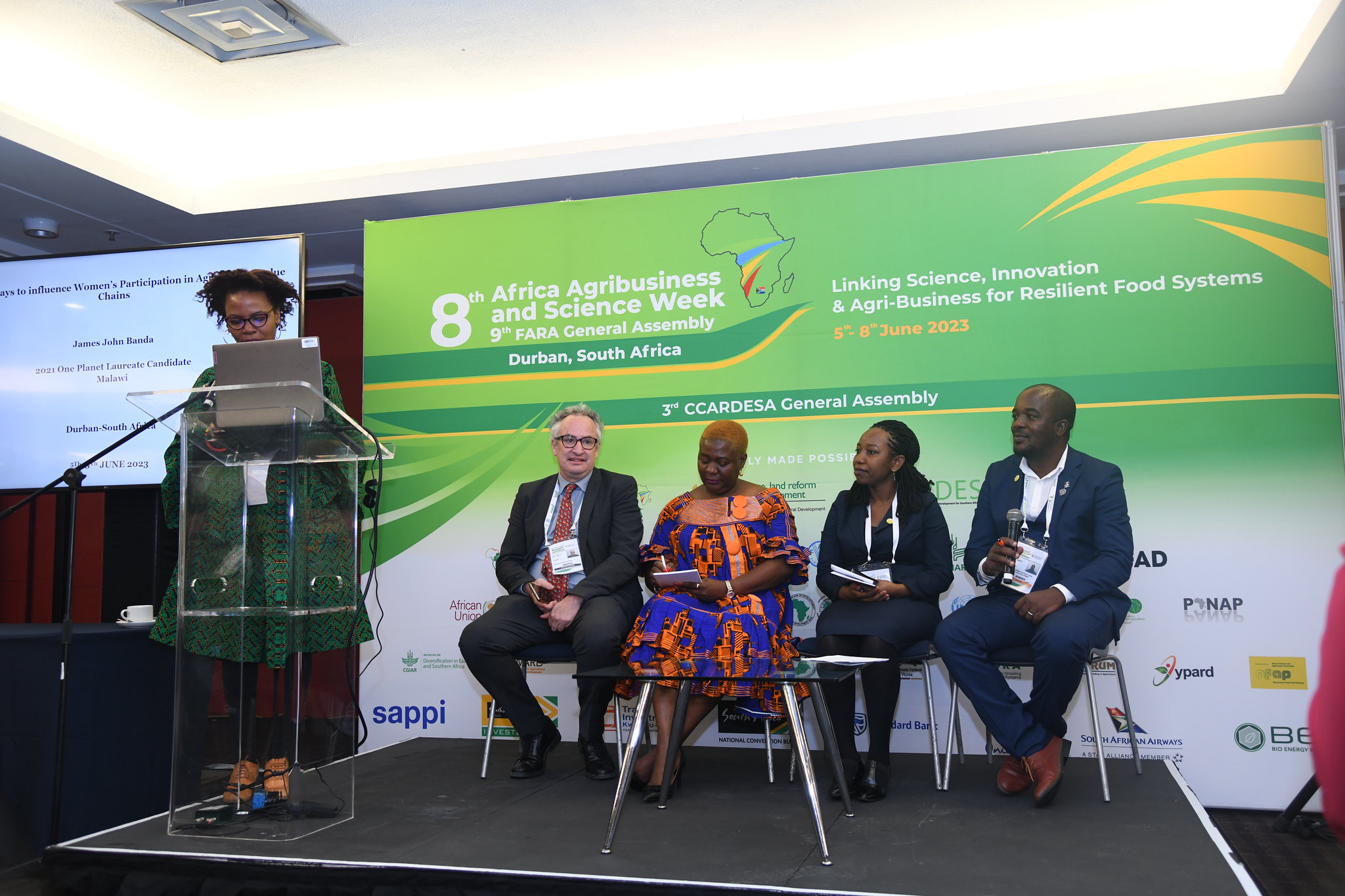
A parallel session to explore how we can make African food systems gender responsive for equitable livelihoods. Photo: N. Ronoh/CGIAR GENDER Impact Platform.
Addressing gender inequalities from the local to policy level
Although the African policy space increasingly recognizes the challenges women face, more needs to be done to move gender-focused policy goals higher on government agendas, and to support and encourage governments to prioritize gender-responsive frameworks.
Cathy Kamau, Policy and Program Officer for the Alliance for Green Revolution in Africa urged that we should have the courage to adapt and repurpose policies that are not usable: “We need to rethink how we approach policy measurements and policy adequacy. Is the evidence present useful, usable and is it used? We need a feedback loop to see the effects of and impacts of policies to be used to replan and recalibrate existing policy frameworks.”
Additionally, the panel emphasized the need for intentional investments in capacity-building interventions that will enhance the capability of various policy actors to communicate, disseminate and create awareness about inclusive policies. They also called for deliberate support to researchers to enable them to apply a gender lens in their work to ensure that gender-responsive agriculture is embedded in the culture and practice of African Agricultural Research for Development.
Dr. Mariame Maiga, Regional Gender and Social Development Advisor at the West and Central African Council for Agricultural Research, highlighted that supporting researchers to take a gender lens to their work ensures access to and uptake of technologies. The speakers emphasized that technologies should be designed with women instead of for women, which could increase their productivity.
“Science and innovation with proven technologies can unlock the potential of agriculture to feed Africa. But the technologies must be gender-sensitive, climate-smart and nutrition-sensitive,” she said.
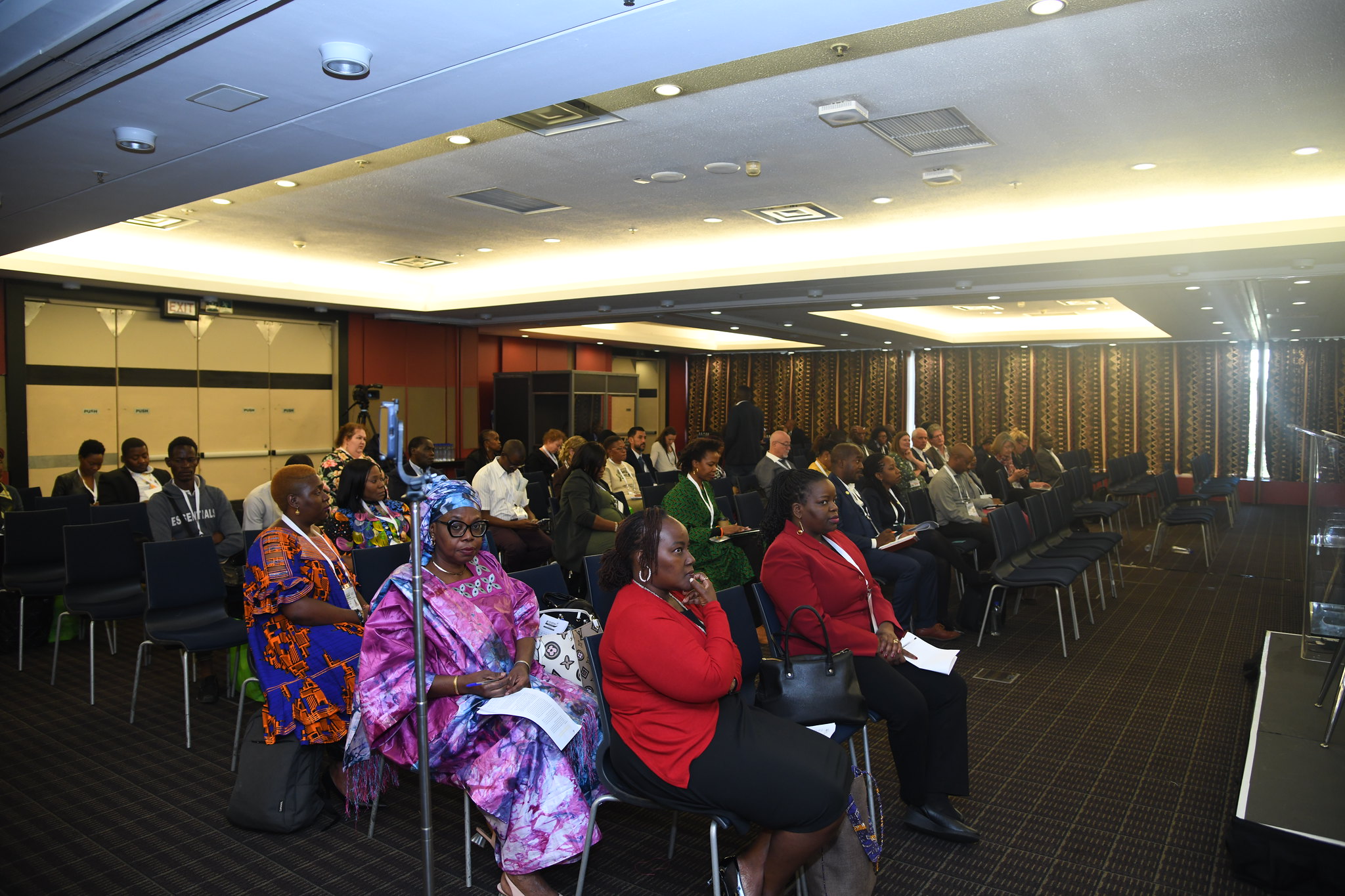
AASW8 parallel event. Photo: N. Ronoh/CGIAR GENDER Impact Platform.
Scaling gender-responsive technologies
The session also highlighted technologies and approaches that already effectively reduce drudgery for women in the household.
In Tanzania, for example, women spend an average of six hours collecting firewood. With most of their time spent in the kitchen, burning firewood and charcoal puts them at risk of carbon monoxide poisoning. With biomass briquettes¾a renewable fuel source made from forest and agricultural waste¾women can access a quicker and safer fuel alternative that also prevents deforestation. The briquettes then free up their time for other essential income-generating activities.
Raheli Nazayoeli, Research Officer at Tanzania Industrial Research and Development Organization (TIRDO), noted that adoption is still low because most women are unaware of the technology. Furthermore, for the women who are making briquettes, the machines are expensive limiting them from making quality briquettes. To address this, Raheli and her colleagues at TIRDO are working on designing more affordable machines and accessible briquettes.
“Women do not have access to the machines to make the briquettes. Men have [access] and are even exporting the briquettes,” she explained.
While beans are known as ‘a woman’s crop’, threshing is still drudgery for women, taking them days to complete the work manually. Portable multicrop threshers (for beans, maize, sorghum and more), introduced by the Pan-Africa Bean Research Alliance, produce nine bags of beans in an hour, saving women a lot of time.
Dr. Eileen Nchanji, Gender Researcher at the Alliance of Biodiversity International and CIAT, underscored the importance of designing such technologies to work for women rather than later asking how women can use them. This includes acknowledging the diverse group of women in the value chain farmers, traders, aggregators and processors to ensure their needs are considered.
“If we need three different technologies for men, women and youth then so be it. Let us not compromise by having another person struggle with the technology that might cause harm or create more inequalities,” Dr. Nchanji stated.
While highlighting the Global Manifesto of Forgotten Foods led by GFAR, Dr. Carlo Fadda from ABC called for more investment and improvement of these crops. He cited not only their resilience and provision of nutrients to communities, but the key role women have as custodians of knowledge of these crops, having led their conservation for years.
“Investing in something of which women are already protagonists will automatically shift gears on women’s participation in food systems,” he concluded.
The speakers also drew attention to the need to broaden agricultural solutions beyond production. They presented the need to create spaces for women in the agribusiness sector and create more cross earning approaches to improve their livelihoods.
Women’s empowerment is essential to their well-being and leads to further positive outcomes for agricultural production, food security, diets and child nutrition. If we are to accelerate progress towards equitable livelihoods, gender responsiveness remains an important prerequisite.
